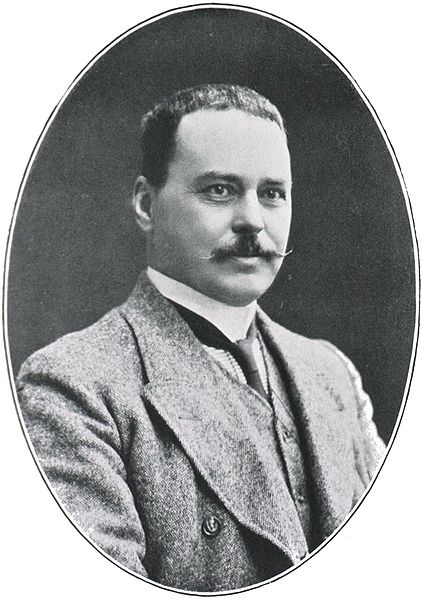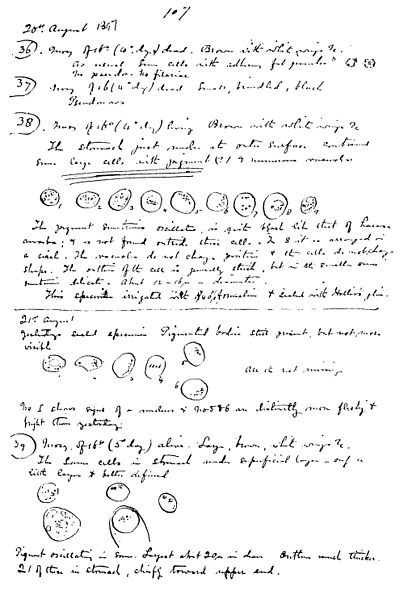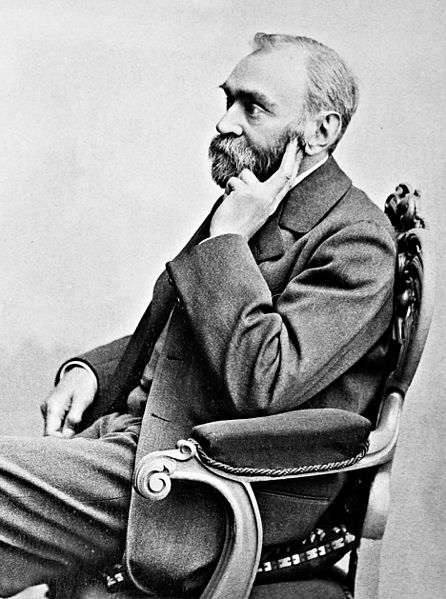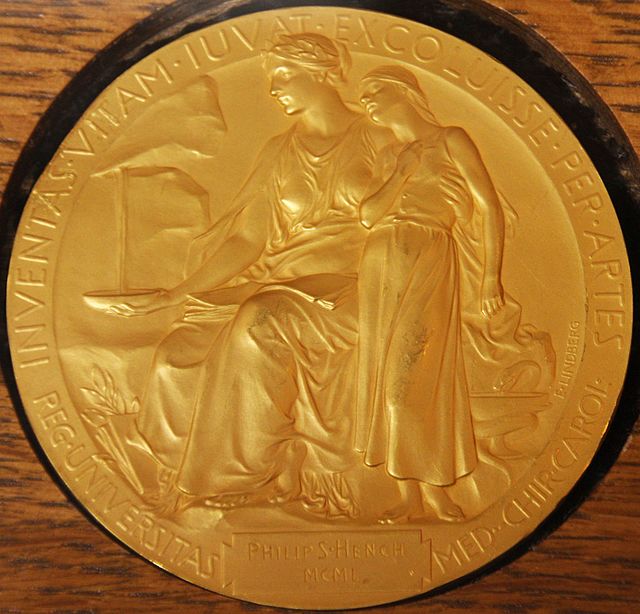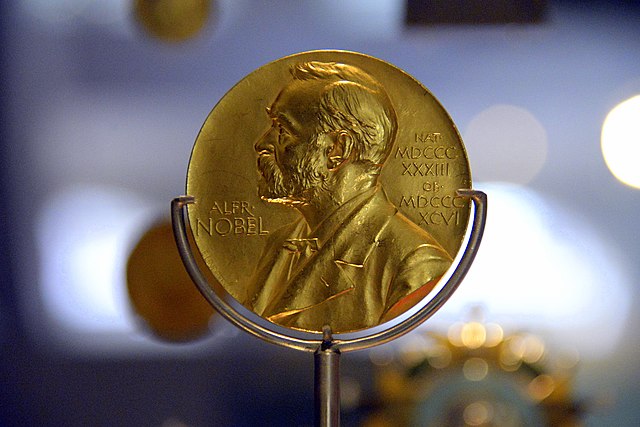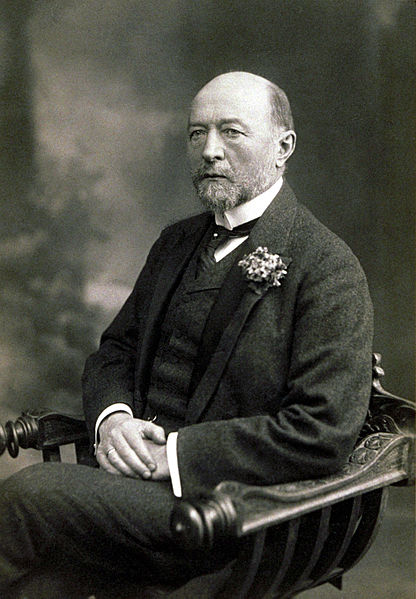Sir Ronald Ross was a British medical doctor who received the Nobel Prize for Physiology or Medicine in 1902 for his work on the transmission of malaria, becoming the first British Nobel laureate, and the first born outside Europe. His discovery of the malarial parasite in the gastrointestinal tract of a mosquito in 1897 proved that malaria was transmitted by mosquitoes, and laid the foundation for the method of combating the disease.
Ronald Ross
The page in Ross' notebook where he recorded the "pigmented bodies" in mosquitoes that he later identified as malaria parasites
Plaque from the Ronald Ross Memorial, Kolkata
Ross, Mrs Ross, Mahomed Bux, and two other assistants at Cunningham's laboratory of Presidency Hospital in Calcutta
Nobel Prize in Physiology or Medicine
The Nobel Prize in Physiology or Medicine is awarded yearly by the Nobel Assembly at the Karolinska Institute for outstanding discoveries in physiology or medicine. The Nobel Prize is not a single prize, but five separate prizes that, according to Alfred Nobel's 1895 will, are awarded "to those who, during the preceding year, have conferred the greatest benefit to humankind". Nobel Prizes are awarded in the fields of Physics, Medicine or Physiology, Chemistry, Literature, Economics and Peace.
Nobel was interested in experimental physiology and set up his own laboratories.
The reverse side of the Nobel Prize for Physiology or Medicine
Alexander Fleming's 1945 Nobel Prize medal for Physiology and Medicine on display at the National Museum of Scotland, Edinburgh.
Emil von Behring received the first Nobel Prize in Physiology or Medicine in 1901.

